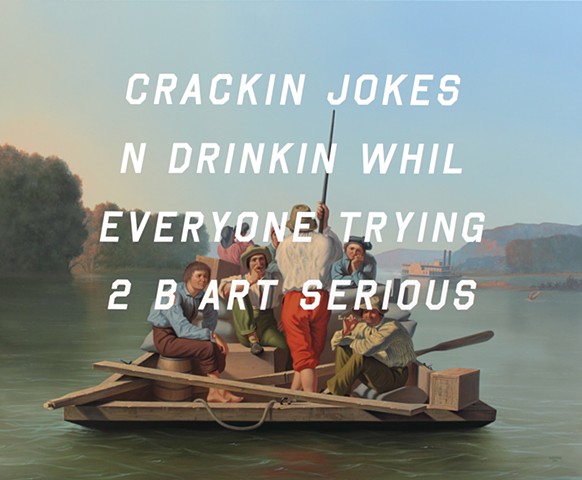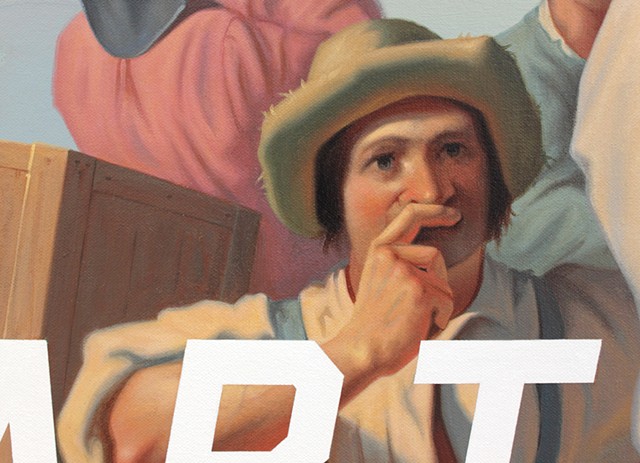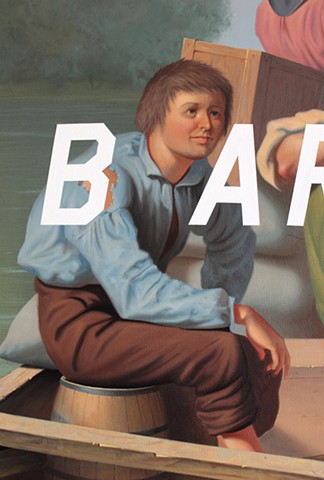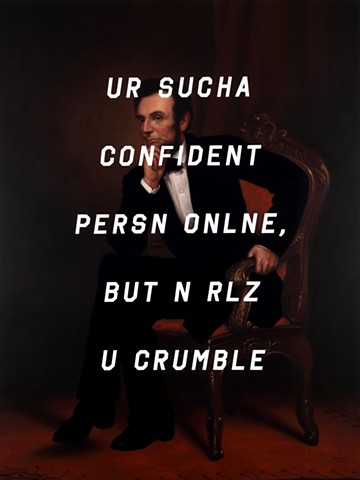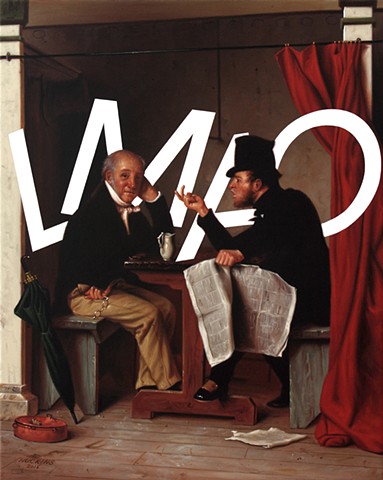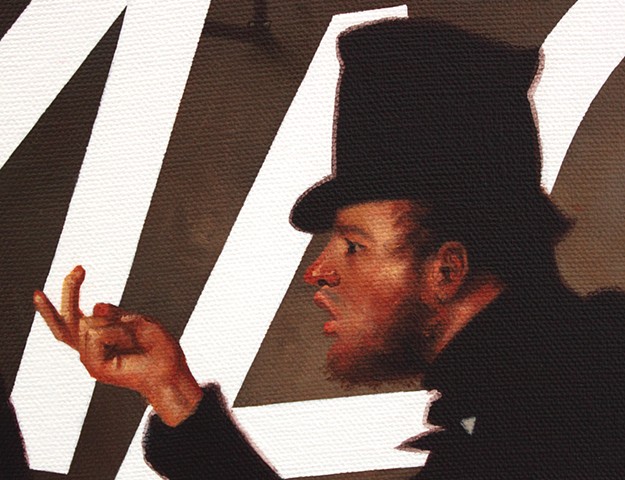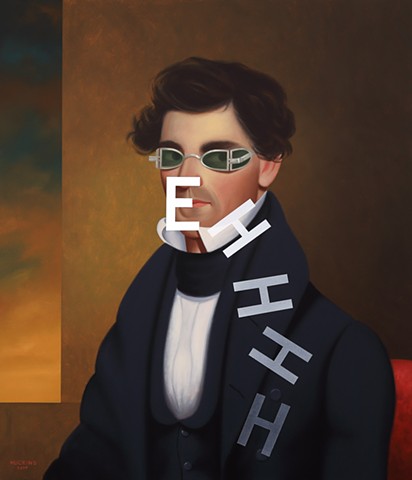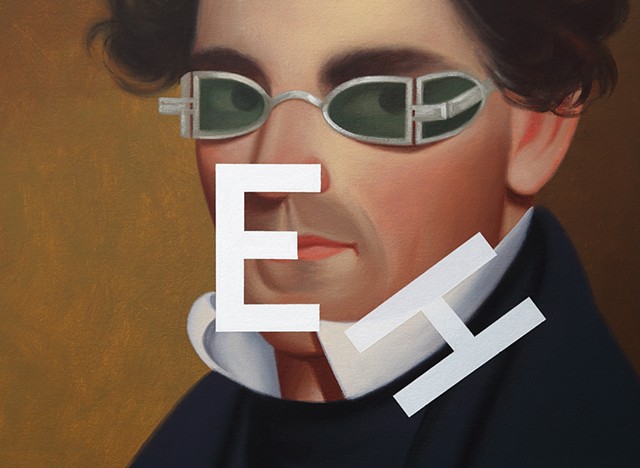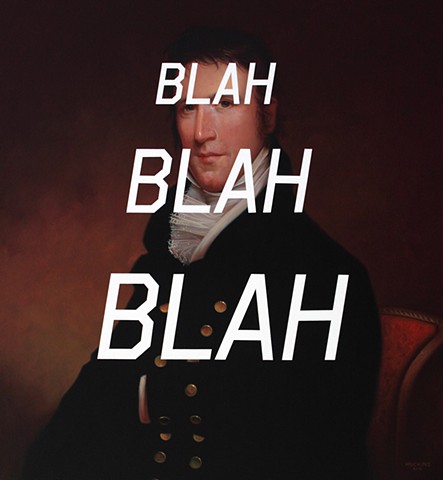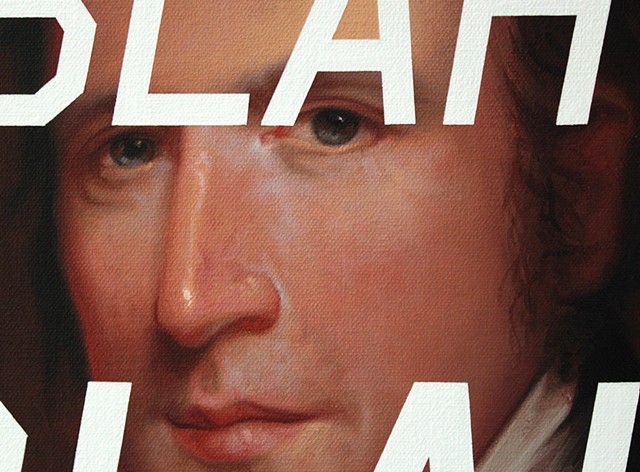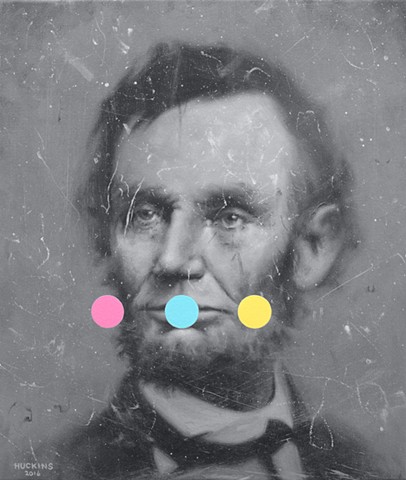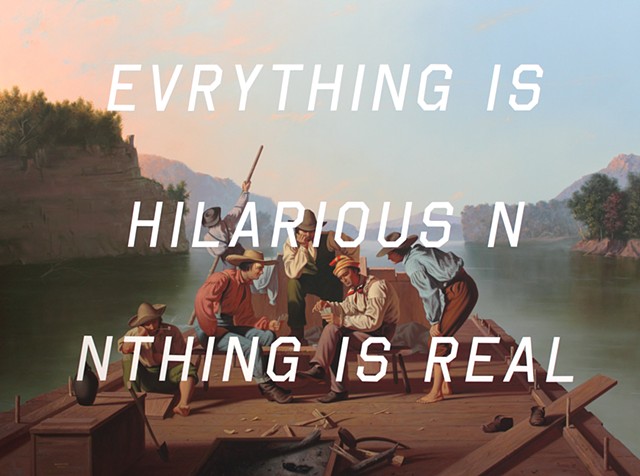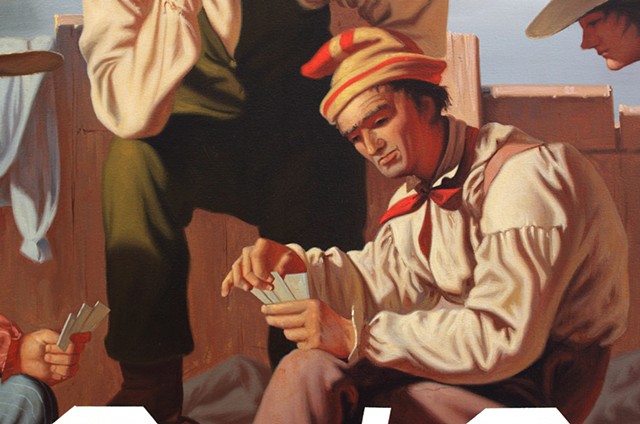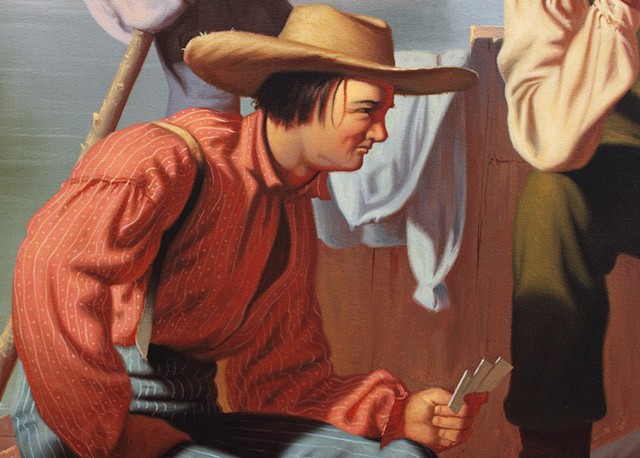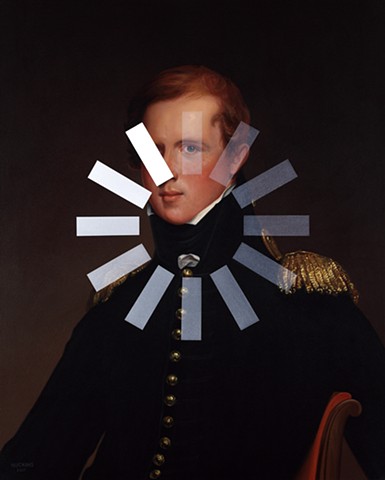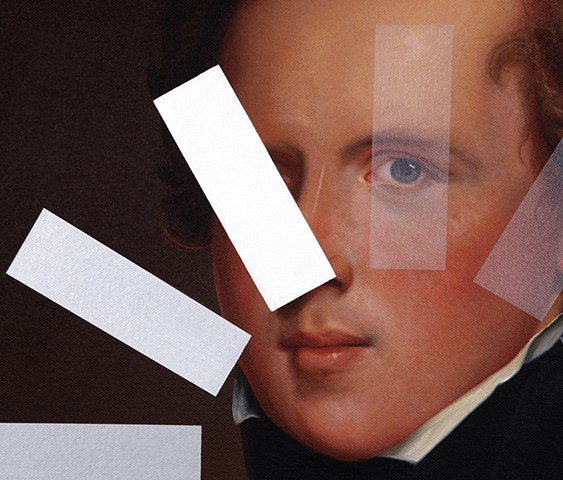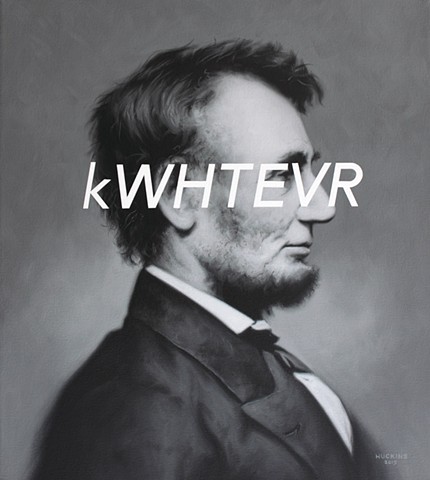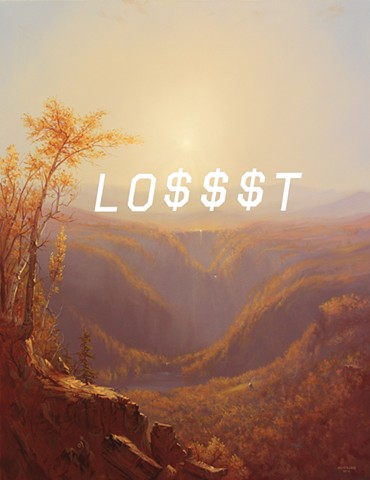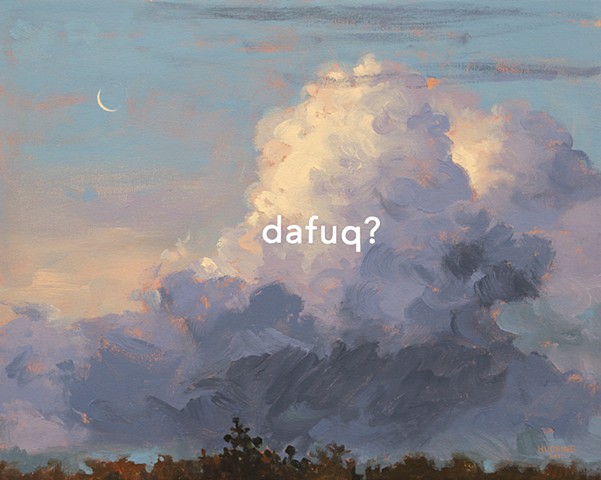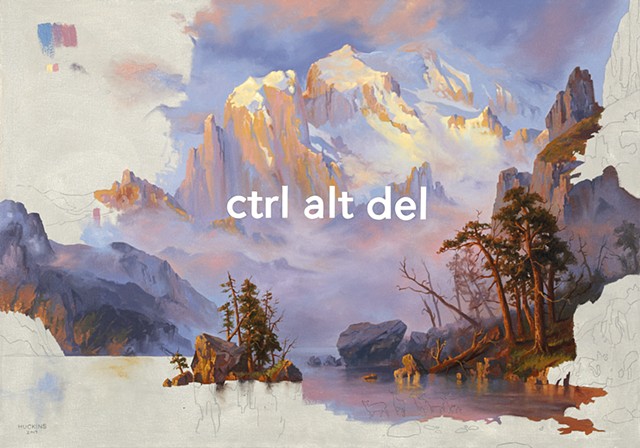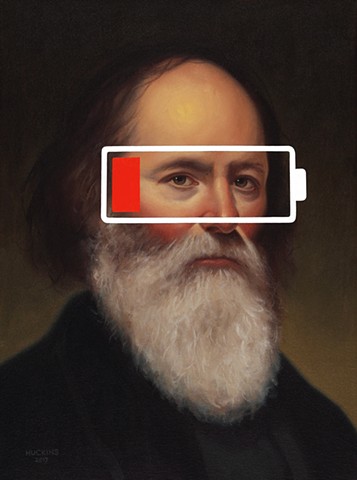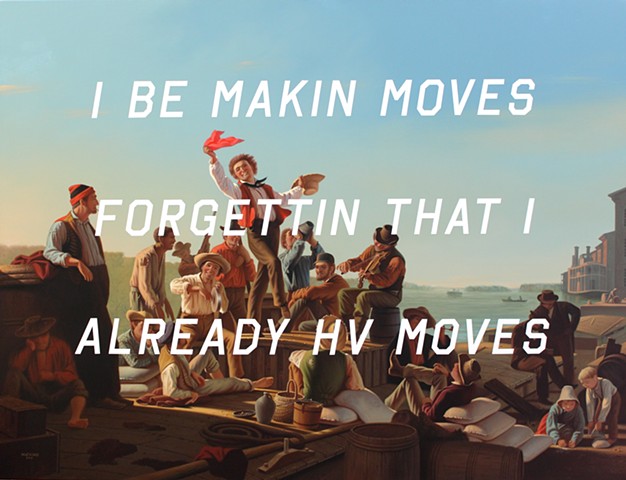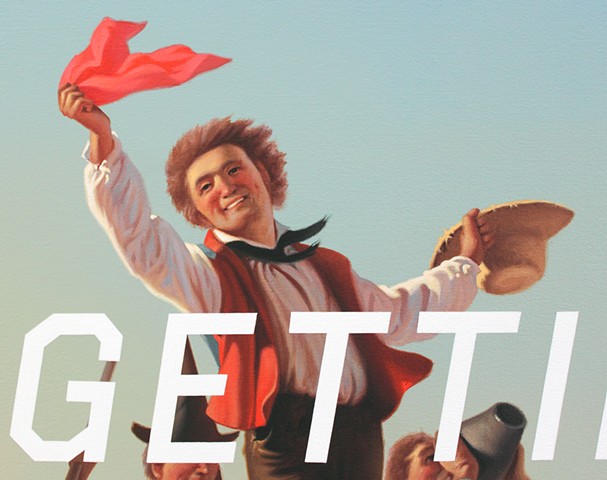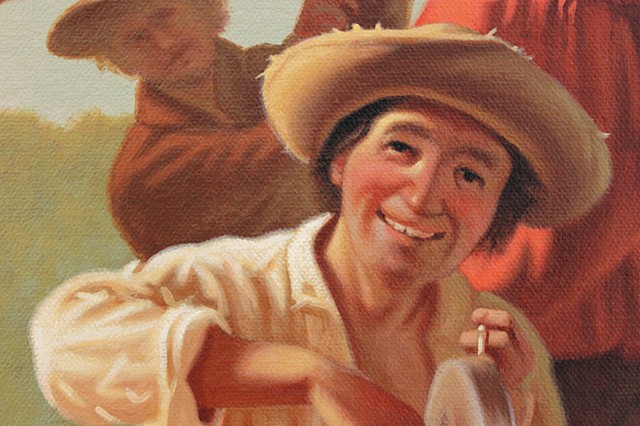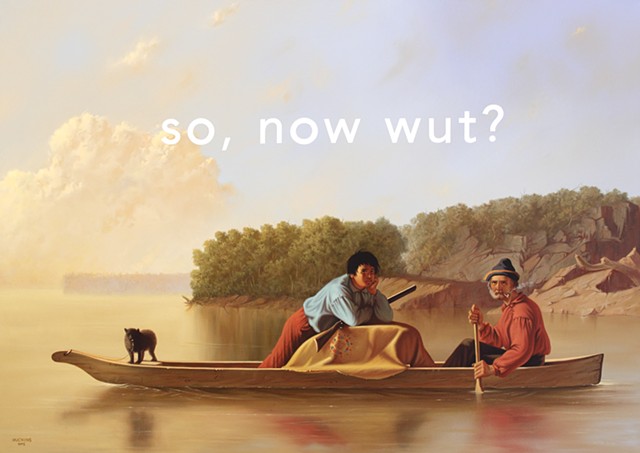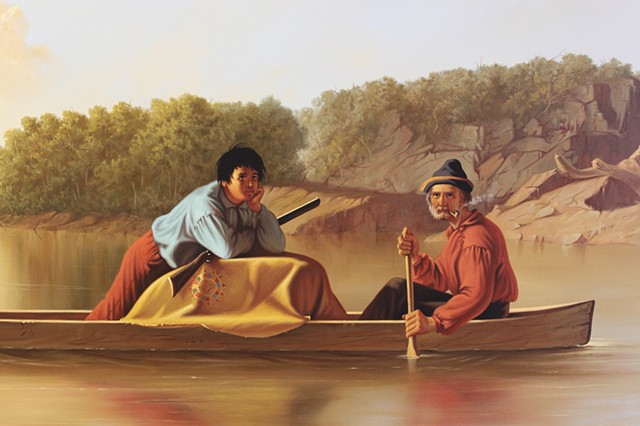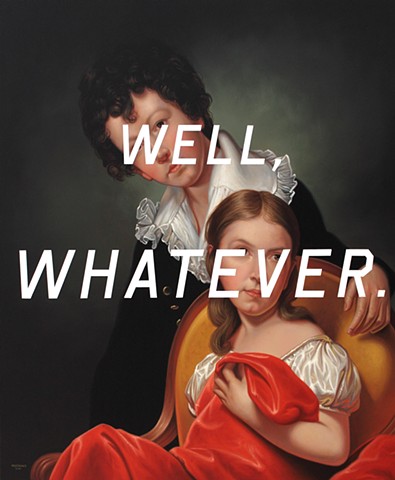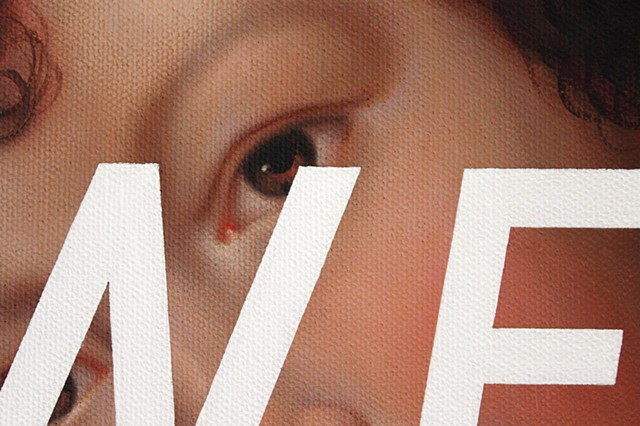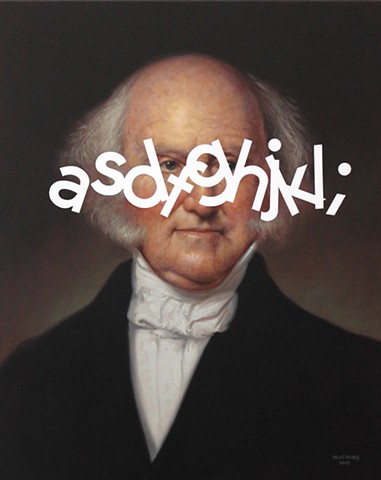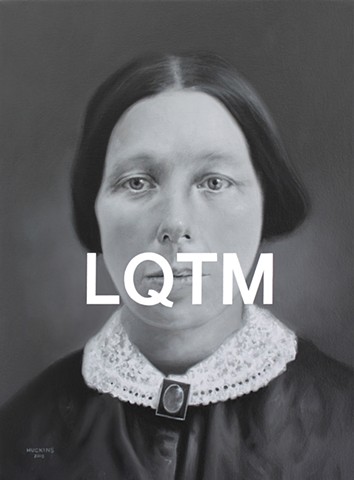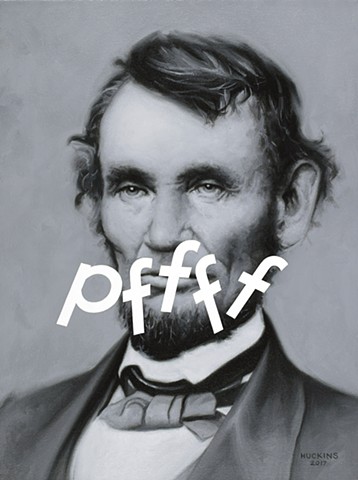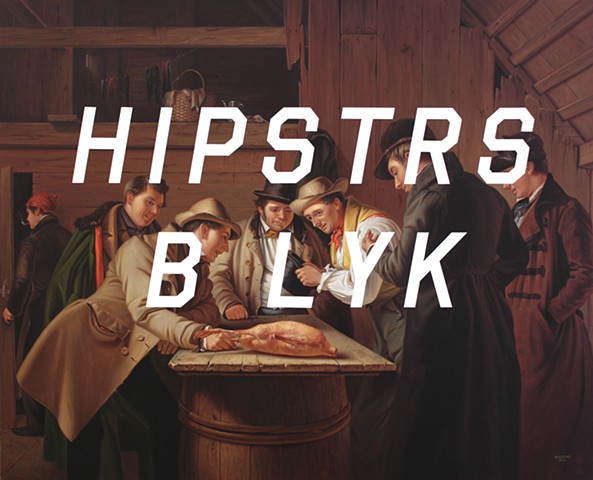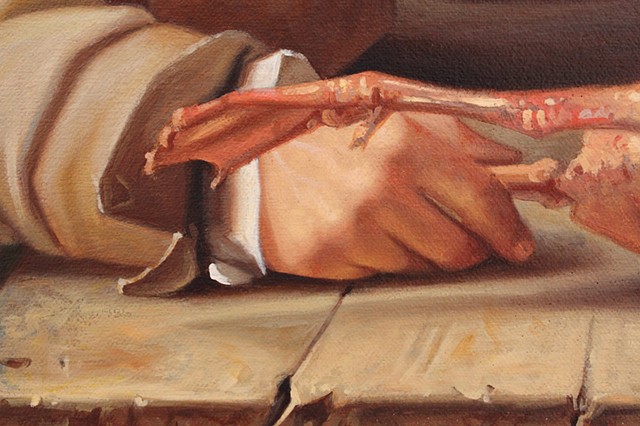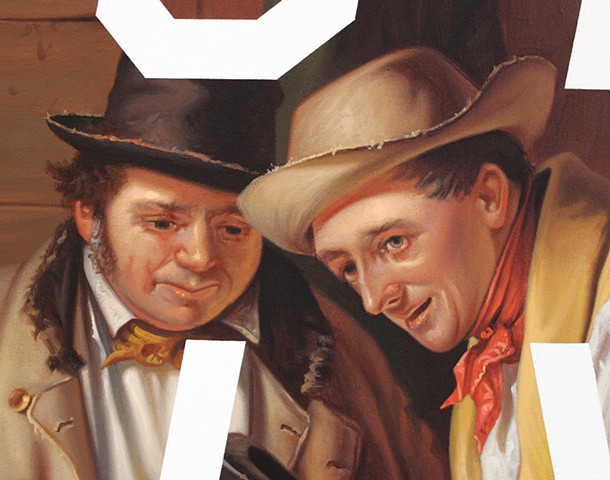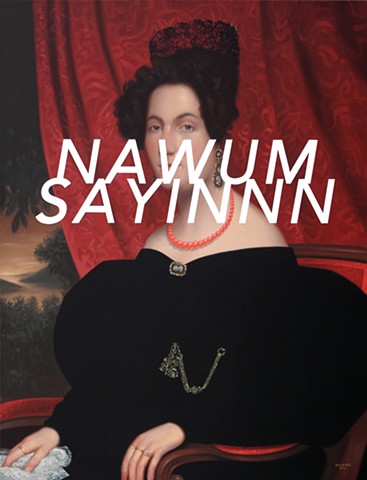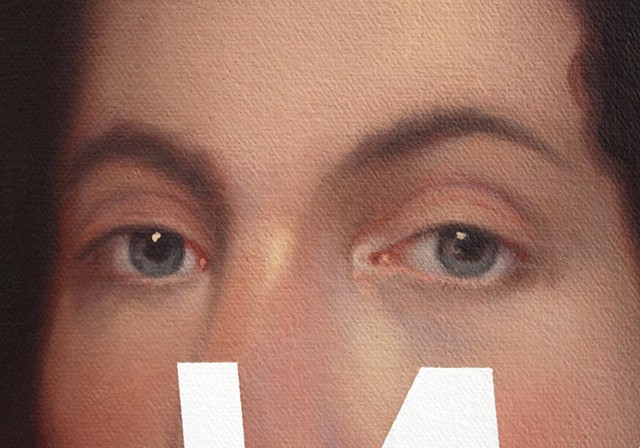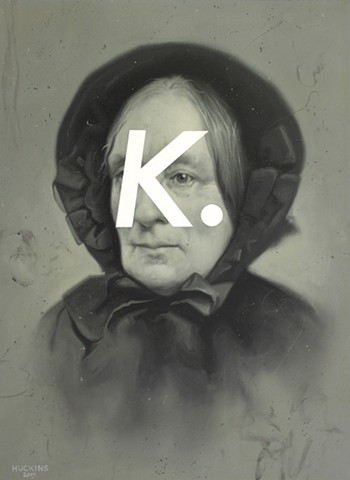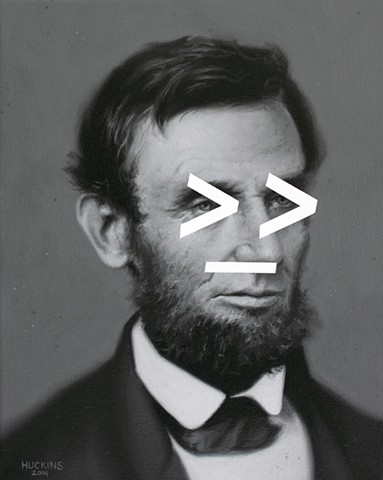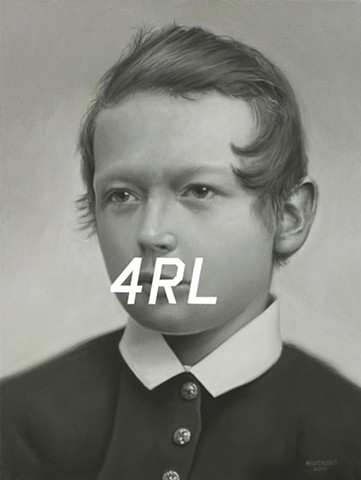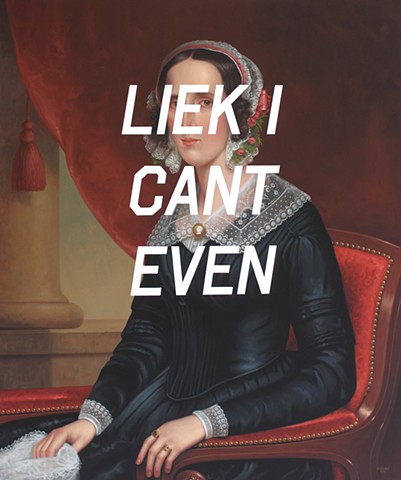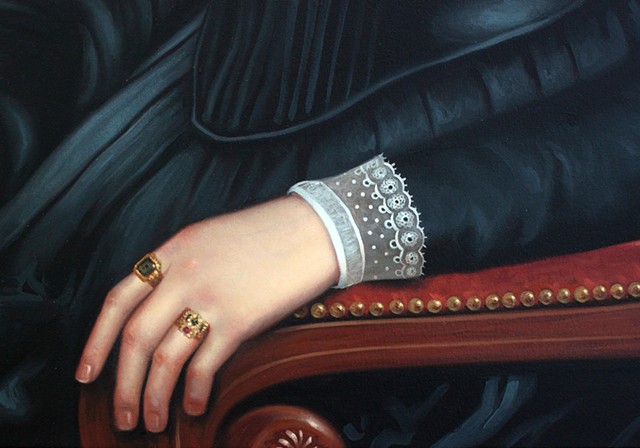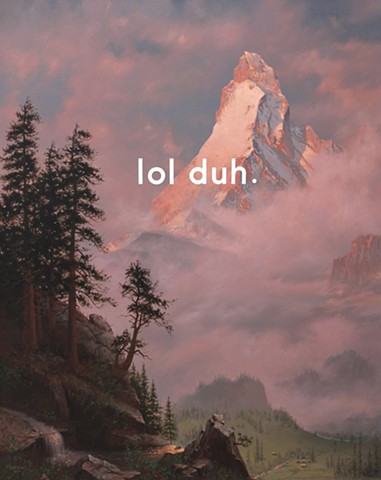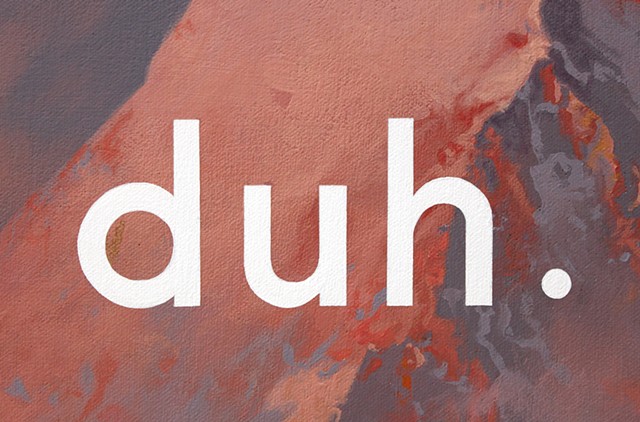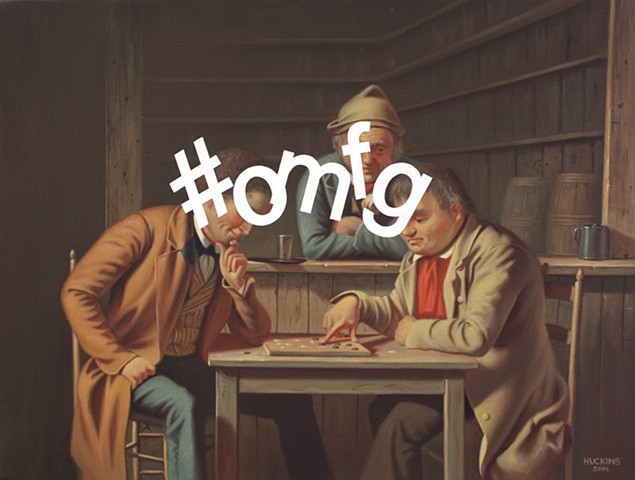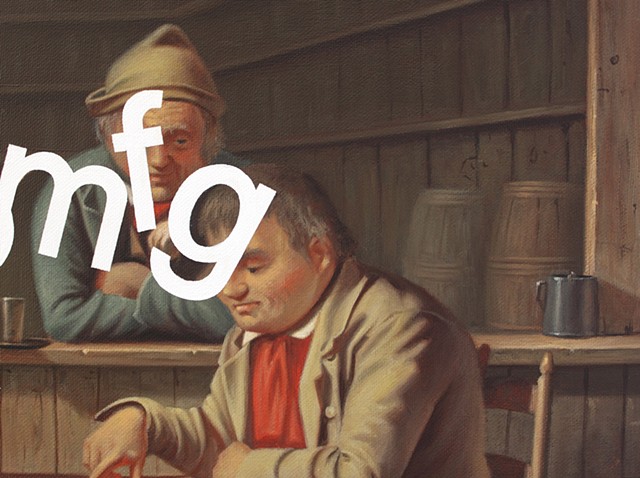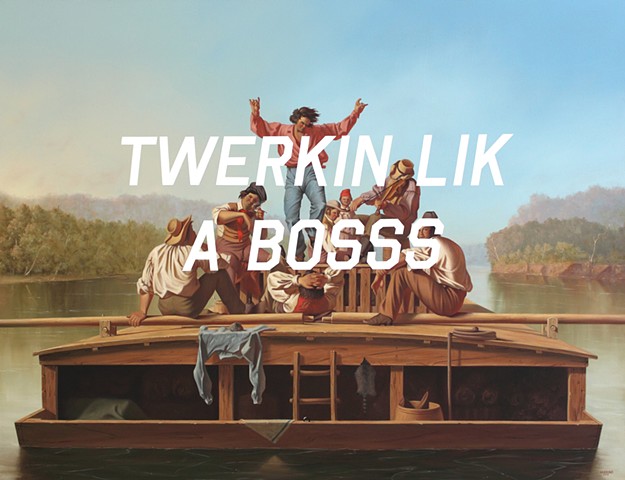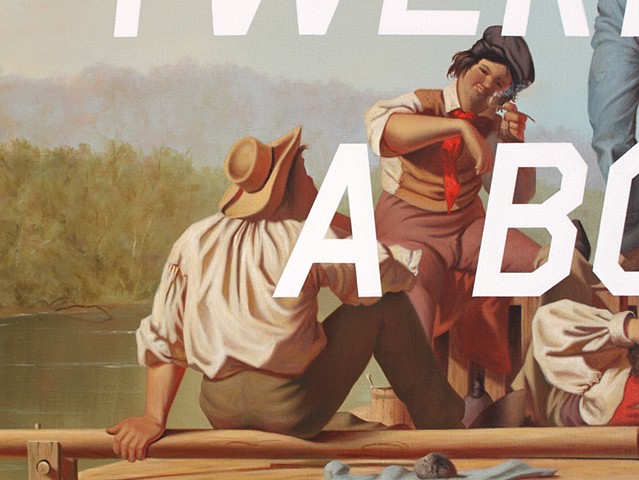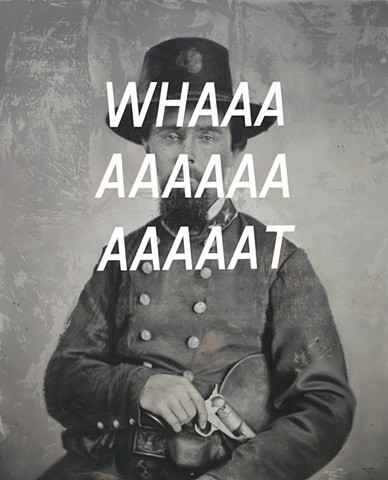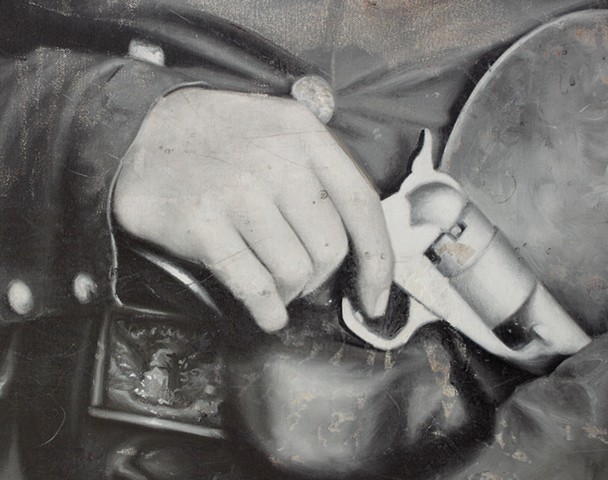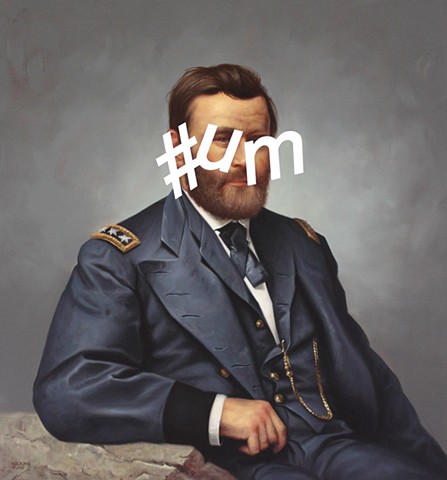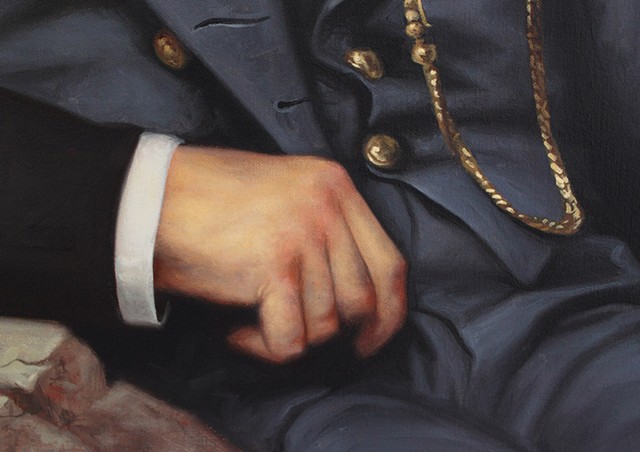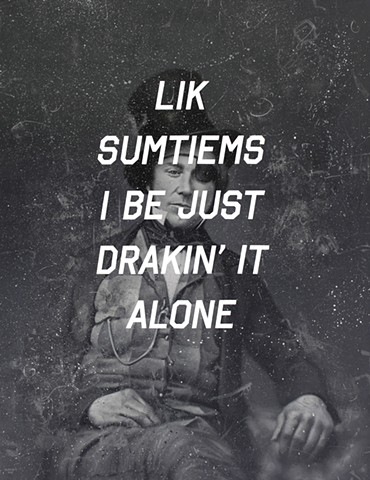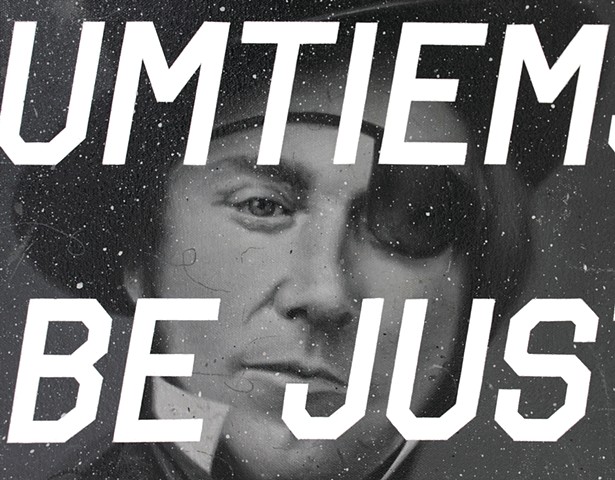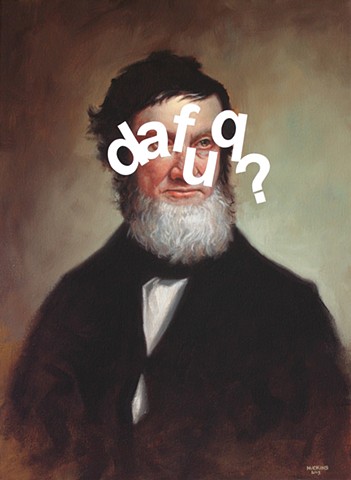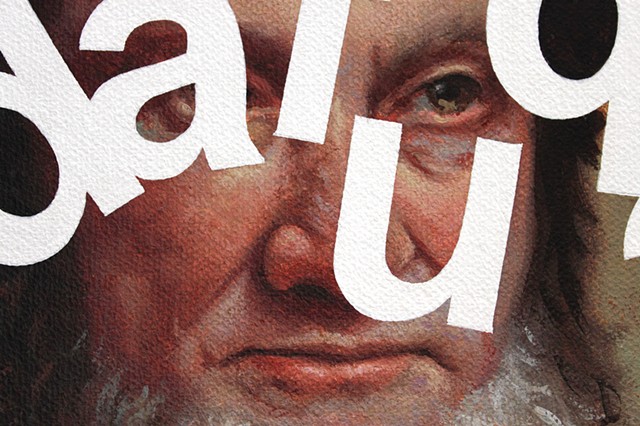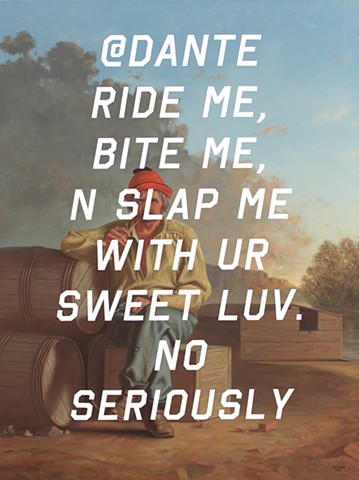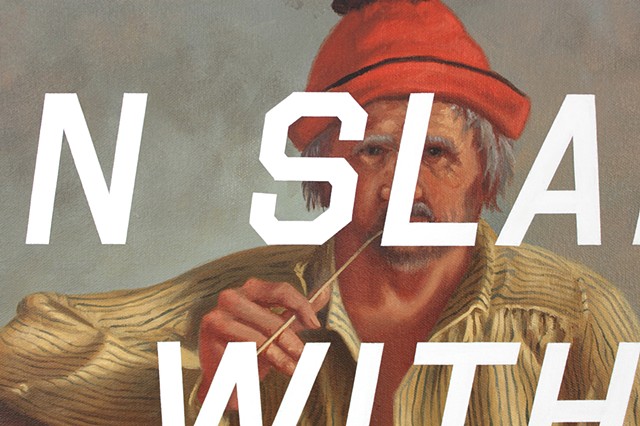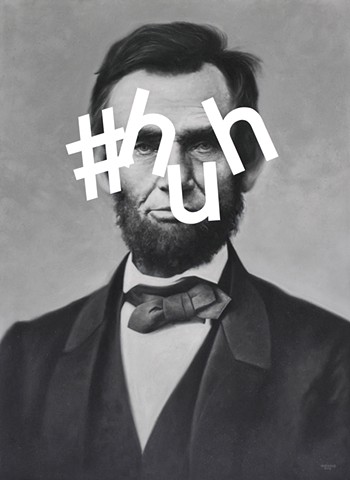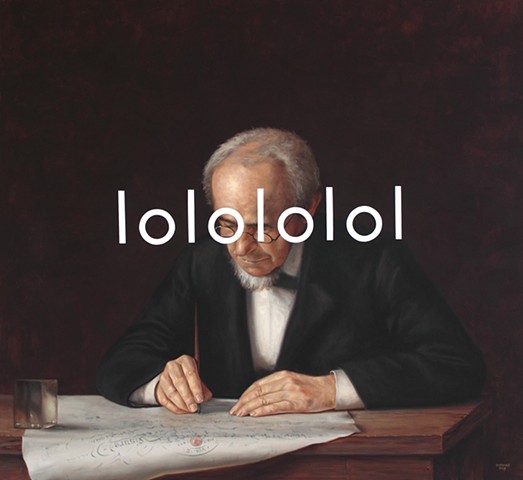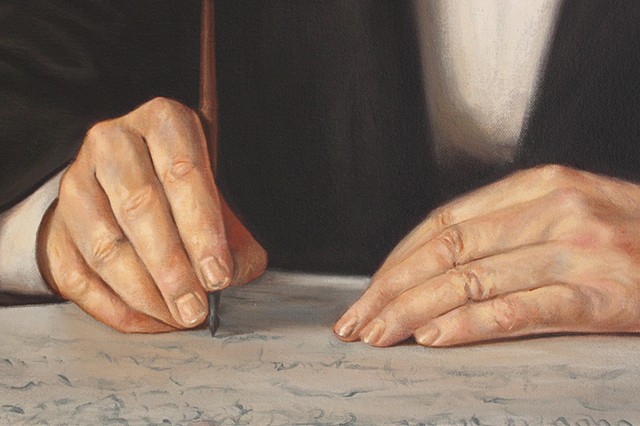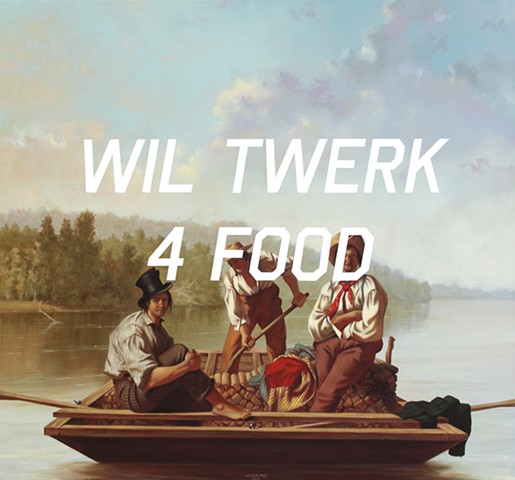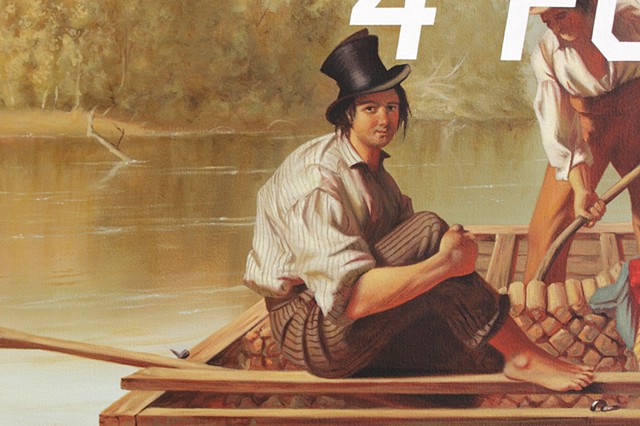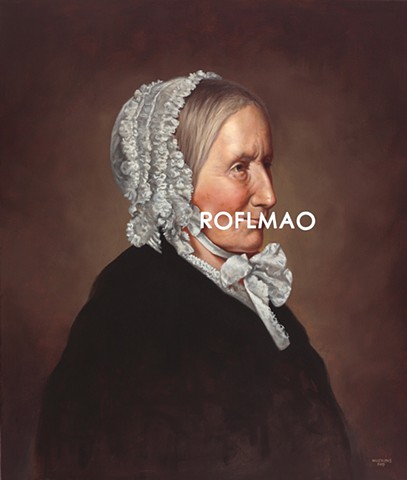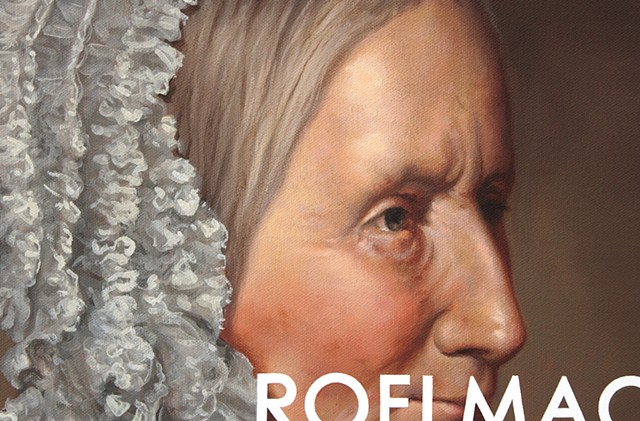The American __tier
Robert Hine and John Mack Faragher define the American Frontier as “a tale of conquest, but also one of survival, persistence, and the merging of peoples and cultures that gave birth and continuing life to America.” (1)
With the recent additions of pop culture slang words, such as ‘twerk’ and ‘selfie,’ to the Oxford Dictionary, was this the vision our early ancestors and frontier explorers had in mind as we continue the ‘conquest?’
The American __tier series explores 19th century American painting and photography in context of 21st century lexicons - Facebook status updates, tweets, texting acronyms - that permeate today’s popular culture. The process is a methodical replication of the original work, each painted by hand followed by the superimposition of large white letters, also painted, of social media jargon.
The frontier was conceived through an exchange of a few well-formed ideas communicated in person and by handwritten letters. Imagine what Lewis & Clark could have done with the internet while exploring the American west.
Technology influences how much we know and what we believe, as well as how quickly and intelligently we convey our ideas. But does how we communicate govern the value of what we communicate? The physical act of typing very fast on small devices has undeniably impacted spelling, grammar and punctuation, encouraging a degree of illiteracy that has become the new social norm. As goes our grammatical literacy, do our social and cultural literacies follow? Are we in a continuing state of the debasement of language?
But who are we to say that ‘twerk’ and ‘selfie’ are not valid forms of communication? These additions do not signify the death of the English language, but rather as a growing and evolving method of communication which changes as does our world. However, one may argue that technology and youth associated slang isolates us more, not less, and it is easy to idealize centuries-past life as a simpler, more civil, more intelligent, and ironically, more ‘connected.’ Families exploring the West would go weeks, months, or even years without instantaneous communication, while a text going from Denver to New York takes approximately a few seconds. Those century old methods of communication, intelligently and clearly, exhibit passion, courage, and connection, while today’s digital speak gives only a glimpse into the human psyche.
In any event, we live in a very different time than our Explorers did and we would appear to place our priorities in very different places: what entertains our selves versus what serves our society.
If Lewis & Clark could comment today, would they click the ‘like’ button, or post ‘wtf?’ and then go check their Miley Cyrus tweet?
(1) Hine, Robert V.; John Mack Faragher (2000). The American West: A New Interpretive History. Yale University Press. p. 10.
NOTE: All works are physical paintings, NOT digital and/or photoshopped images.
